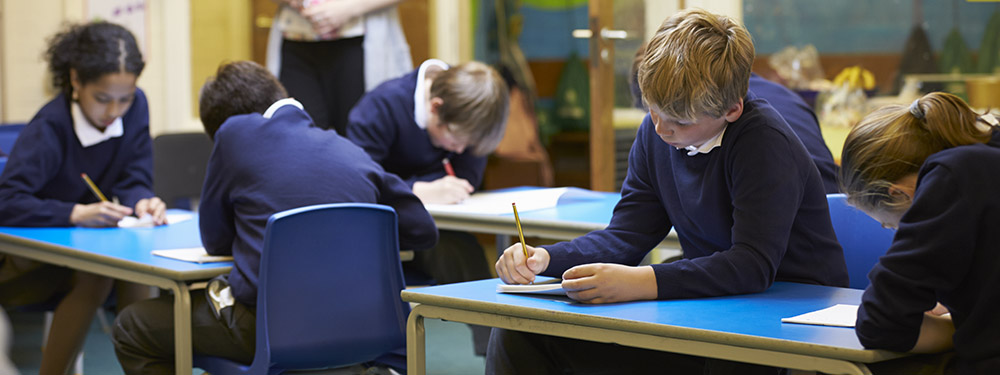
Key Stage Two Statutory Testing has taken place this month for Year Six pupils across England. SSAT Senior Education Lead and Head of the Primary Network, Laura Burton, reflects upon the assessments from the perspective as educator and parent, considering the impact our current accountability system has on the whole school community.
Working for 21 years in primary schools, with over 14 years as an upper Key Stage Two teacher and senior leader, Year 6 SATs have always felt ‘part of the job’. As a teacher, the preparation in the run up to the tests, the practise papers, the considerations, and adaptations required for vulnerable pupils, the encouragement and timetabling of activities that aim to keep wellbeing high were all part of ‘being in Year 6’.
As senior leader, I’ve often encouraged staff by reminding them that the Key Stage Two tests positively reflect four years of learning and not just that of the final year of primary. However, despite this being our mantra, the system within which we operate mean it is often very difficult to stick to our principled beliefs of what is best for our pupils: there is always moral tension. The pressures caused by our current accountability system, which sees schools having to demonstrate their effectiveness through the snapshot performance of 10 and 11 year olds, lead to Senior Leadership Teams and Year 6 staff knowing that preparing for that one week in May is an unavoidable inevitability.
This year I have a new perspective. I am a parent to a Year 6 child who has this week sat the Key Stage Two tests. My daughter is a hardworking and resilient girl who loves school. Like all schools across the country, her school have supported their pupils extremely well during the months leading up to the testing period with a balance of preparation and wider curriculum opportunities, aiming to secure wellbeing and confidence of pupils throughout this time. However, this year, her questions during the test week itself have forced me to look through a different lens – one with more clarity which has made me return to my own values:
‘Why do we have to do the tests, Mum?’
‘Will my secondary school know the results?’
‘Can’t they just look in my books?’
Speaking with parents from my daughter’s school, other children are also having similar thoughts going into this week. Every aspect of the statutory testing means children within the year 6 cohort cannot escape the perception that this performance is important.
As a family, we have always encouraged our daughter to ‘do her best’. She knows that her best will always be good enough but as a child who can crumble under the pressure of a test, I know she wishes it could be judged differently. With a transition to secondary school on the horizon, with its associated anxiety, from a child’s perspective testing does seem one thing they could do without. There must be another way.
SATs return this week after having been cancelled in the last two years due to the Covid-19 pandemic. We all know families experiences during the pandemic and partial school closures had a huge impact on widening inequality and schools have undoubtedly worked tirelessly to identify and close the gaps in learning. Ongoing disruption this year, with continued staff and pupil absence, has made things even harder. Although the government have announced that SATs results will not be used for league tables this year, the data will be included in a schools IDSR (Inspection Data Summary Report) informing inspection activity under the Quality of Education judgement. Pupils’ experiences over the last two years have all been different, each school’s situation unique. Leaders from across the SSAT Primary Network share the same view; the playing field is not equal and therefore it cannot be fair that this is the way schools continue to be judged.
So, what is the answer? Policy makers must acknowledge the professionalism of school staff and listen to the voices of our leaders, teachers, children, and parents. It is time to relook at what information is gathered on schools, what is important and how it is used. It is time to look to the experiences of other countries and consider a new approach. It is time to harness the power of collaboration, moderation, and professional dialogue.
It is time for change.

